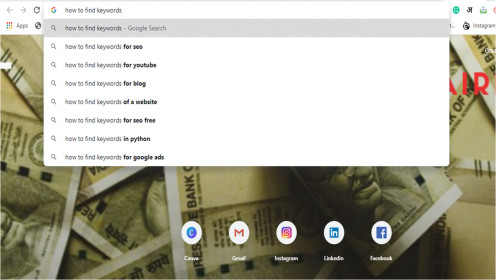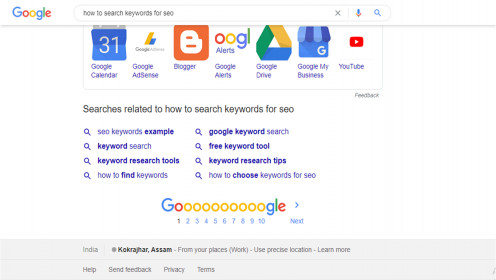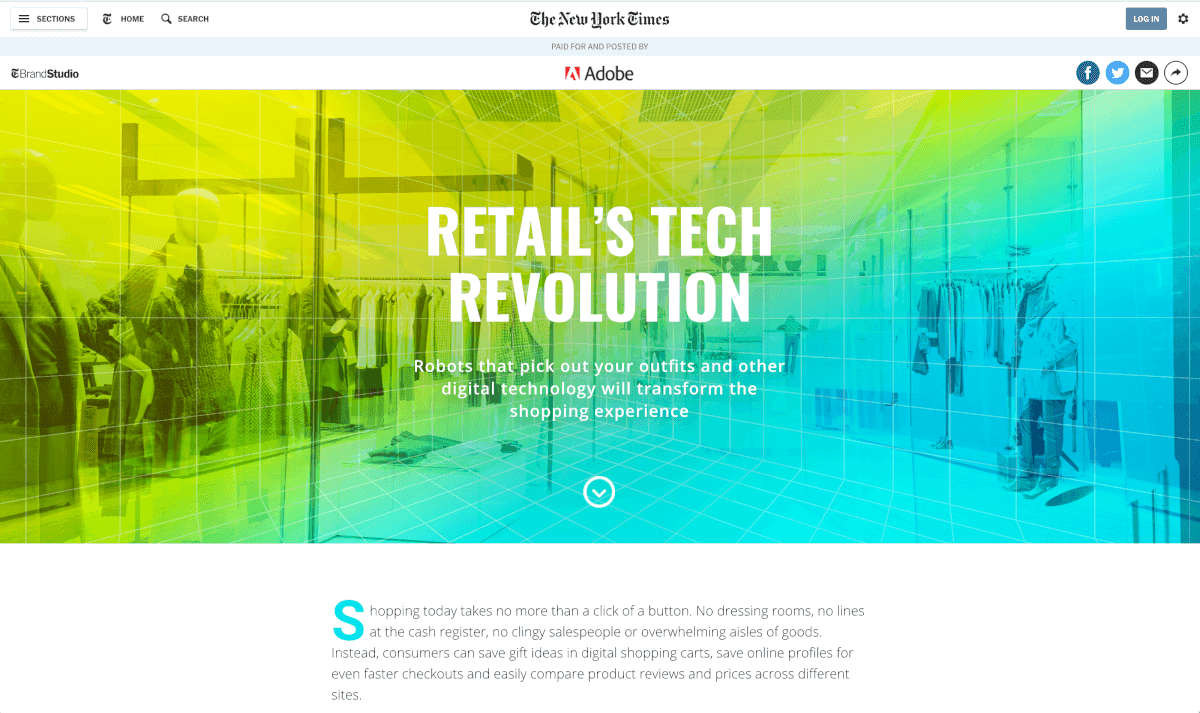How to Find Keywords for SEO?
Introduction
Do you want to rank your article on the top of Google search result? How can we achieve that position? What are the methods we can apply to reach on the first page of Google search?
If you are starting your journey as a Digital Marketer and want to understand what is SEO, then this article will definitely help you. When anyone enters into the Digital Marketing field they always hear something called SEO.
So, I want to share some of the important points related to SEO. And how can you do the right keyword research for SEO? Whatever techniques I will share in this article for that we will keep Google as a parameter.

What Is SEO?
SEO is a short term for Search Engine Optimization. Many people think it is related to the website’s organic ranking on the Google search. But the truth is it is more related to ranking your pages/articles of the blog/website. And since we do SEO for articles and thereby it helps us to bring organic traffic to our website.
So, in simple words, it is a combination of many techniques through which we can bring organic traffic to our articles. Before we see how we can do keyword research we need to understand there are more than 200 parameters which google check to decide which article to give a higher position.
What Are Keywords?
Keywords in simple terms mean those words which your target audience type while searching anything on Google search. So, for example, if I want to learn how to make egg curry and on Google search if I type - “how to make egg curry” then these words are keywords. And if I use these same keywords on my article and headline then chances of articles appearing on Google search may go higher.
We have to understand that whatever we want to search on Google, we always type some words related to our topic and those are keywords. And why this is important because if you want to generate lots of traffic for your website then you need to know what keywords/terms your target audience is using. So, now let’s see how we can do keyword research.
How To Do Keyword Research?
Till here we have learned what is SEO, what are keywords and why it is important. Now, comes the difficult part. There are three main ways through which you can search for your keywords.
I am sharing all three techniques, some are free to use and for others, you might need to pay. So, let’s understand one by one. I will show you exactly how I came up with this headline for this article.
1. Write Your Own List Of Headline Options
Whenever you want to write any headline or what to search for keywords then first try the old way. Always try to write and come up with your own headline options. We need to do this task because we ourselves are part of the audience and we need to learn to think as per audience. So, you need to focus on one key point. In this case, our key points are “keyword research”.
So, try to come up with at least five to six headline options. For example below are the five different headline options.
A. Learn how to do keyword research?
B. What are the techniques of keyword research?
C. Different ways of doing keyword research
D. Common techniques of keyword research
F. How to find keywords?
So, this is the first step which you have to do. And during this stage, you don’t have to think about whether they are right or wrong. But just come up with some headline options.
2. Go And Do Google Search
Now, in the second stage, you need to act in the same way as your audience will do or did. So, follow the below steps to discover keywords.
Step 1 - Go to the Google search bar and type your main topic in a sentence
Step 2 - See and note all the suggestions showing by Google
Step 3 - Check what other topics are coming when you type your topic and note if they are also related to your topic
Step 4 - Now go to YouTube and repeat this same process
Step 5 - Go to Quora, Reddit, Forums etc and repeat this whole process
Now, after completion of this process just type your main topic and hit the search button and go below and check the Google search related topic.
See, if you can find better keywords there. For example, check the below images. In the second image, we can see keywords like - “how to choose keywords for SEO”. Even this can be a good option.
If you have understood the steps up to here, then you are in a good position to decide the headline for your article. There is no hard and fast rule to write any headline as it is a matter of creativity.
But in the case of digital marketing if we add the keywords which target audience are searching online then our chances of getting traffic increases more. I hope you have understood how I came up with this headline option.


3. Use Keyword Finding Tools
The best part of digital marketing is for anything we have online tools. These tools are considered as a lifesaver and if you can learn how to use them then we can get the goldmine of keywords. By using the below tools we can get even better results. So, here are some of my recommendations.
a) Google Keyword Planner
b) Ubersuggest
c) SEMrush
d) askthepublic
e) ahrefs
You have to remember you have to use these tools on a regular basis to get familiar with them. Some of them are free while others take monthly charges.
Conclusion
Before I end this article, one last thing which I wanted to share is, it will be good if you can use long-tail keywords. Long-tail keywords are those keywords which contain more than 3 to 4 words. It has been observed that almost all target audiences search in this way. And marketers give importance to SEO because it helps in organic search. But it takes lots of time and effort.
I hope this article of mine is able to give some insight and understanding as to how to find keywords for SEO, articles and headline. In your articles always add more than one keyword. These are known as primary and secondary keywords. But if you can learn to use keyword finding tools then that will be far better.
This content is accurate and true to the best of the author’s knowledge and is not meant to substitute for formal and individualized advice from a qualified professional.
© 2020 Vikram Brahma








